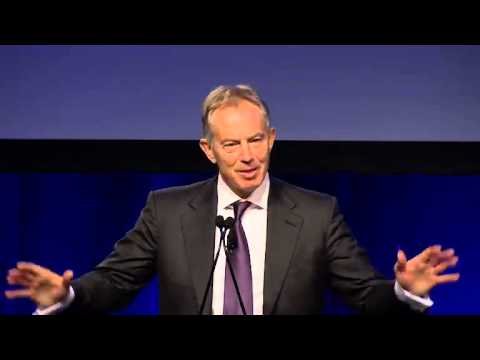Mr. Blair, please do not beat the drums of war

TEHRAN- In spite of being sinful, President Nixon was on the belief that “a good politician is the one who listen more than talk, do not take action hastily and learn lesson from the past!” However, the 37th U.S. president had not observed this moral principle during his professional work, but many politicians like him make claims contrary to the reality. We can conclude that Mr. Nixon’s advice has no use in the world of politics. An example is Mr. Blair.
The former British prime minister does not follow ethics and talk too much and listen little and does not learn lesson from the past.
He has been one of the culprits of many wars during the last fifteen years and incited the U.S. to wage war on Afghanistan, Libya, Iraq and Syria and is known as a liar by the Chilcot Inquiry and has once again incited the U.S. to interfere militarily in the Mideast.
In response to the sending of 250 U.S. commandos to Syria, the former British prime minister, in an interview with CNN, expressed support for the act. He said, “The U.S. decision to dispatch 250 soldiers to Syria to fight Daesh will make a big change.” He used classic interpretations from the U.S. role in the world and noted, “If we want the U.S. power be used (in) the world, I support the issue, regardless of the probable future problems, it is essential to use this power.”
It is not difficult to understand the reason behind Blair’s war mongering language and his support for dispatching forces to the Middle East as far as we know him. Unfortunately, he is not able to distance himself from neo-militarism of his Atlantic conservatives. According to some political analysts in Washington, he incites the U.S. to militarily intervene and get out of quagmire at the right time.
Presence of 250 soldiers may not be remarkable. But the question is that if the Syrian crisis exacerbates and President Assad’s forces advance towards the opponents’ position, will Pentagon be determined to dispatch more forces to the region? Or will the White House embark on sending forces in case of a more worrisome situation in the regional countries like in Afghanistan, Iraq of Libya? If the Pentagon’s answer is yes, it is considered a clear contradiction to Mr. President’s former and current policies. Is this approach a failure for President Obama’s strategy based on providing security to the governments and local forces?
Mr. President is being strongly criticized for not having a clear strategy and not being determined in settling crises like those in Syria and Iraq and not supporting the Afghan government. But will a sending of military forces to the region compensate for this lack of determination? Mr. President tries to underestimate the issue in an interview with the CBS News, saying, “The U.S. forces are not supposed to confront Daesh directly”. Neither the public opinion nor the political critics in Washington described Obama’s new decisions in contradiction to his earlier promises.
Now that no clear prospect is seen in the Middle East crises and the U.S. expectations are rising, is the promise of “we will not send the country’s youths to war anymore” fading away after eight years? And will the U.S. return to the 2008 starting point in a way is not sought by Blair and even allies like Israel and Arabs? I am not willing to respond to this question.
Leave a Comment